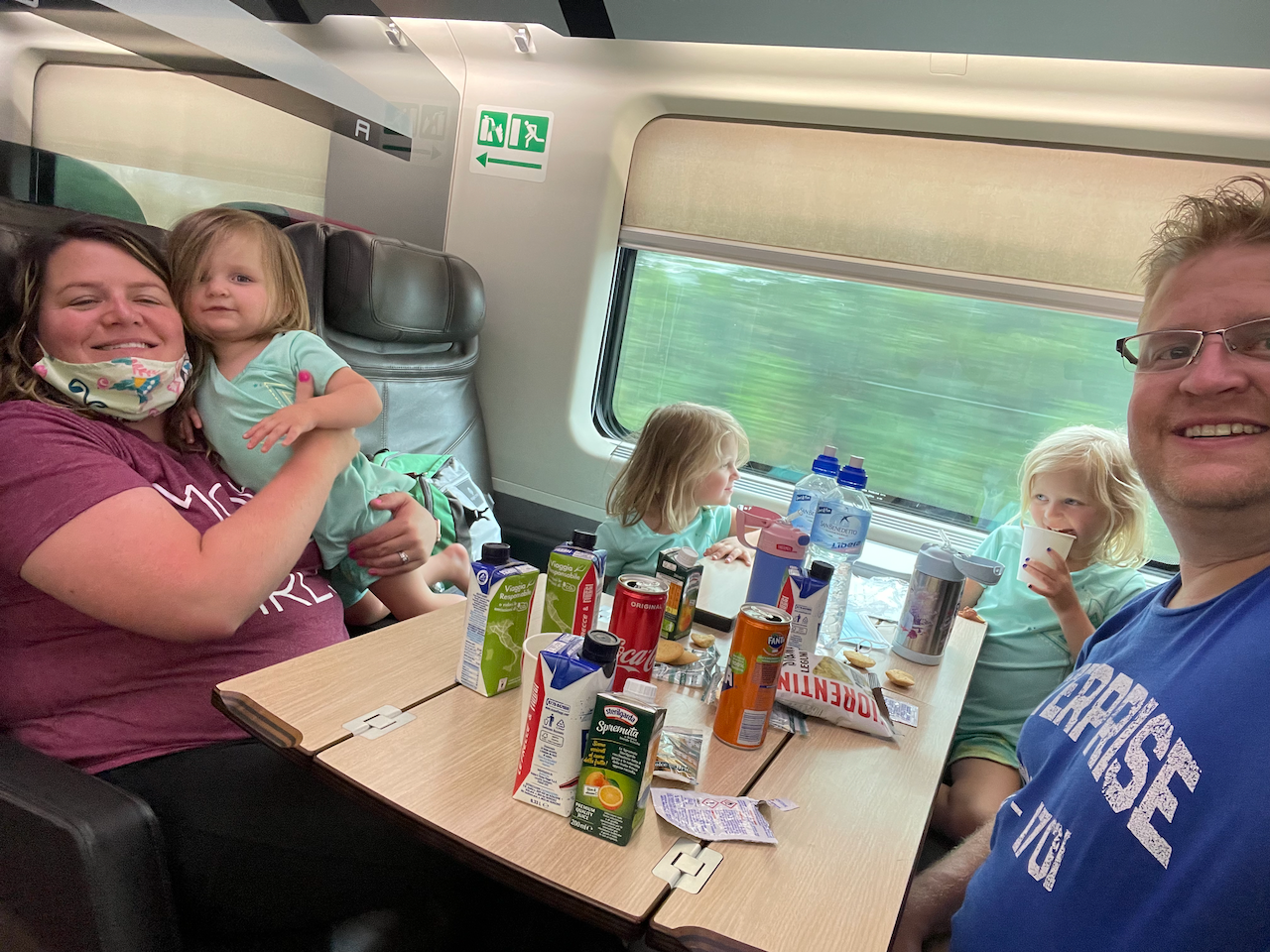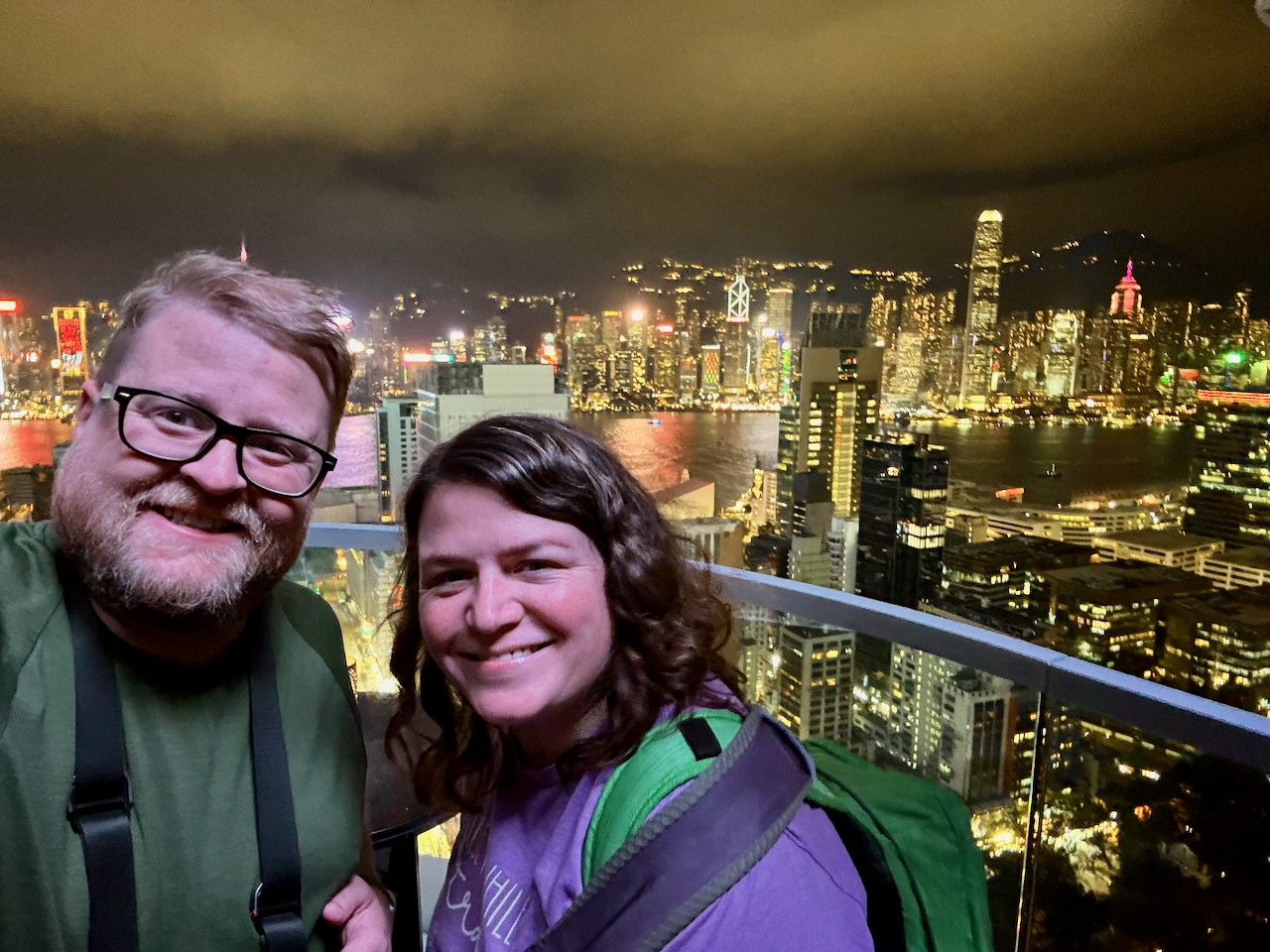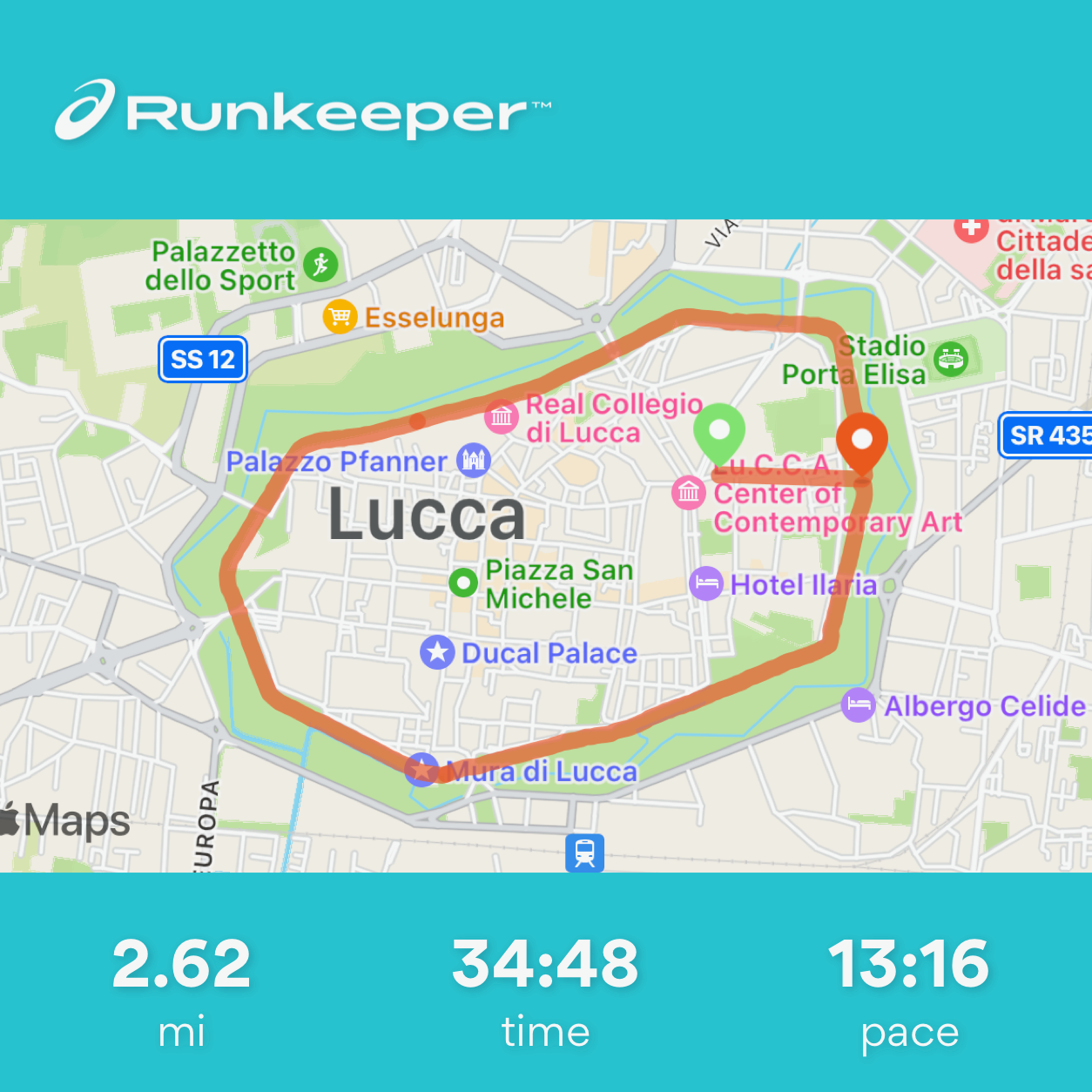Traveling with ADHD: A Dad's Honest Take on Managing Focus, Family, and Full-Time Travel

The tuk-tuk weaves through Bangkok traffic as I film Cora practicing Thai phrases with our driver for our YouTube channel, all the while juggling our next three cities in my head and trying to mentally debug the code I'm writing for another job. This is Tuesday morning for our family of five, three years into full-time travel across 20+ countries.
Oh, and I have ADHD.
Most people assume these two things don't go together - that you need to be hyper-organized and detail-oriented to pull off long-term family travel. But here's what I've discovered...
My ADHD Story: From Struggling Student to Straight A's
Let's rewind to 1996. I was a freshman in high school, pulling straight C's and D's, and my parents were getting calls about my "potential" not being met. The truth was simpler and more frustrating: I literally could not focus on anything that didn't immediately capture my interest.

During class, I'd desperately want to sit upside down in my chair, but teachers would never allow that kind of disruption to their "normal" classroom environment. This was the 90s - we weren't as understanding about different learning styles back then. Instead, I'd fidget with anything within reach or mentally check out entirely while the teacher droned on about algebra. Homework was a nightmare. I'd "forget" to bring assignments home, or when I did remember, I'd find seventeen other things that absolutely had to be done first - cleaning my room, organizing my CD collection, anything but the actual work.
My parents knew something was different, but in the mid-90s, ADHD wasn't well understood in our area. We drove two hours to the wealthy side of Indianapolis to find a doctor who was more current on behavioral conditions. He wanted to try this new medication called Adderall instead of the more common Ritalin that other kids were taking. Getting diagnosed still felt like being labeled as broken - kids with attention issues were called "Ritalin kids," and it wasn't meant as a compliment.
When I started taking daily medication, I was terrified my friends would find out I was a "special ed kid." I told them I had a heart condition to explain the pills, keeping my real diagnosis completely secret. Adderall wasn't "cool" back then, and it definitely wasn't being abused yet. So if anyone found out I'd be labeled a social outcast.
But here's the thing about Adderall: it worked. Almost immediately. For the first time in my life, I could sit in class and actually hear what the teacher was saying. I could open a textbook and read an entire chapter without my mind wandering to what I was going to do after school. That first semester on medication, I went from nearly failing to straight A's.
The transformation was so dramatic that teachers didn't believe I was the same student. I graduated somewhere around 86th in my class of over 500 - not valedictorian material, but a far cry from the kid who almost didn't make it to sophomore year.
College Independence and the Medication Mistake

Fast forward to my freshman year of college, and everything started falling apart. My high school girlfriend and I broke up, sending me into what felt like devastating heartbreak (melodramatic teenager thinking love was lost forever - silly looking back, but absolutely real at the time). Around the same time, my doctor switched me from Adderall to Strattera, a completely different type of medication. While Adderall is a stimulant that works immediately, Strattera is a non-stimulant that can take weeks to build up in your system and doesn't provide the same clear, immediate focus that I'd grown accustomed to.
The combination of mild depression and a medication that didn't work as well left me feeling lost. That's when I got the brilliant idea to join the Navy - until the recruiter told me ADHD medication was disqualifying for military service. So I decided to go off medication entirely to pursue military service.

Ironically, once I was off medication in 2002, I no longer wanted to join the Navy - and I also lost interest in most of my college coursework. I eventually dropped out. That was the last time I took any ADHD medication, and I've been managing without it for over two decades now.
This began my era of self-medication. My old-school doctor had actually told me that smoking could help with focus (different times, I know), so I'd started cigarettes at 16. In college, I discovered Red Bull, and later, alcohol became another way to quiet the mental noise.

I quit smoking well over a decade ago, but caffeine and alcohol became my new go-to solutions for managing the mental chaos. The weight gain from all that sugar and beer has been detrimental to my health - something I'm still struggling with today.
The biggest consequence of choosing to manage without proper medication? I developed habits that have stuck with me for over two decades. Procrastination became my worst enemy. I'd hyperfocus on random projects while ignoring the important stuff. Instead of editing YouTube videos or working on freelance projects that actually pay our bills, I might spend an entire day reorganizing our travel photos. Sound familiar? I'm literally demonstrating this problem right now by writing this blog post instead of doing the income-generating work I should be tackling.
ADHD and Full-Time Family Travel
When we decided to sell everything and travel full-time with our three daughters, I knew the novelty and excitement of constant adventure might help with focus, and in some ways it does - new environments provide stimulation that helps my brain engage. But I also knew travel would eliminate the routines that help manage ADHD symptoms, and that's proven true.

The biggest challenge isn't what you might expect. Lindsay has largely taken over the logistics of our travels - flight bookings, accommodation research, itinerary planning - partly because she's naturally good at it, and partly because she's now a professional travel advisor. But also because my ADHD made those tasks increasingly stressful for our family.
My main challenge now is income management. While Lindsay contributes significantly as a travel advisor and handles much of our YouTube channel's brand partnerships, I'm still bouncing between three different income streams (YouTube, freelance work, and various projects) and not doing any of them particularly well. The visa form mistake in Malaysia? That happened because I rushed through paperwork while mentally juggling five other tasks, not giving any single thing my full attention.
Travel days are especially challenging. Even though Lindsay handles most of the planning, I still get overwhelming anxiety about packing and the actual logistics of moving our family from point A to point B. The constant stimulation of new places is exciting, but the lack of routine makes everything harder to manage.
What Actually Works on the Road
After nearly three years of trial and error, we've developed some systems that help, though I'll be honest - we're still figuring it out.

Calendars and reminders are absolutely crucial. Without the structure of a traditional home base, digital organization becomes even more important. We live and die by shared Google calendars and phone reminders for everything from visa deadlines to YouTube upload schedules.
Lindsay has become my external brain for scheduling. She's the "keep us on schedule" person, and I desperately need that. We've learned to double-check all important documents together because my tendency to transpose numbers or miss details can have expensive consequences when you're dealing with international travel.

Exercise and caffeine remain my go-to coping mechanisms. When I'm having a particularly scattered day - like when I've already cleaned the entire kitchen because "it absolutely had to be done right now" instead of working on actual priorities - a long walk (it used to be running, but I need to get back in shape) helps reset my focus. I still self-medicate with caffeine and alcohol more than I'd like to admit, but I'm working on finding better alternatives.

Technology is both helpful and dangerous. While calendar apps and reminders are essential, I've had an eye-opening realization while writing this post: every "miracle productivity app" I try eventually becomes another procrastination tool. The very devices meant to help me focus often become the biggest sources of distraction.
What About Medication?
Getting ADHD medication abroad is extremely difficult, if not impossible, in many countries. Places like Japan and South Korea medication like Adderall is not just banned it's illegal and criminal to possess.
| Country | Adderall | Ritalin | Strattera | Concerta |
|---|---|---|---|---|
| Japan | ❌ Banned | ❌ Banned | ✅ Available* | ❌ Banned |
| South Korea | ❌ Banned | ❌ Banned | ✅ Available* | ❌ Banned |
| Thailand | ❌ Banned | ❌ Banned | ✅ Available* | ❌ Banned |
| Singapore | ❌ Banned | ✅ Restricted** | ✅ Available* | ✅ Restricted** |
| Germany | ✅ Available* | ✅ Available* | ✅ Available* | ✅ Available* |
| United Kingdom | ✅ Available* | ✅ Available* | ✅ Available* | ✅ Available* |
*Available with local prescription and proper documentation
**Requires special import permit and local prescription
Even in countries where medications are technically available, the prescription process for foreign visitors is complicated and expensive. Most international insurance doesn't cover psychiatric medications, and finding English-speaking psychiatrists who understand ADHD can be challenging.
If you're currently managing your ADHD successfully with medication, seriously consider how you'll handle being without it for extended periods. The logistics alone can be overwhelming, and that's before you factor in how going off medication might affect your ability to manage complex travel planning with kids.
Looking back, the switch from Adderall to Strattera in my senior year probably explains why going off medication felt manageable at the time. Strattera never worked as well for me, so I didn't experience the dramatic loss of function that stopping Adderall might have caused. But that doesn't mean going without medication is the right choice for everyone - or even for me, long-term.
Building Support Systems While Constantly Moving
One unexpected benefit of the long-term travel community is that many of us share similar traits. We weren't designed to wear suits and sit behind desks all day. The families who choose this lifestyle often have at least one parent who thrives on novelty, struggles with traditional structure, or needs more stimulation than conventional life provides.
We've found incredible support among other worldschooling families. Whether it's in the cafes of Chiang Mai, the beaches of Da Nang, or the playgrounds of Tokyo, there's an understanding that different brains work differently. When Harper chooses to do her reading upside down in a chair, other traveling parents get it. They're dealing with their own versions of neurodivergent challenges.
This community has been crucial for our family's success on the road. Other parents share resources for managing kids with different learning styles, recommend ADHD-friendly activities in new cities, and provide the kind of understanding that's hard to find in traditional educational settings.

Advice for ADHD Parents Considering Long-Term Travel
If you're an ADHD parent wondering whether your family can handle long-term travel, here's my honest take: it doesn't make ADHD easier to manage, but it can make life more fulfilling despite the challenges.
The cons are real: Routine helps with ADHD management, and travel constantly disrupts routine. Multiple income streams become harder to juggle. Access to mental health support and medication is limited. The constant stimulation can be overwhelming rather than helpful.
But the pros matter too: Your kids will experience incredible educational opportunities. Worldschooling allows for learning styles that traditional schools don't accommodate. The travel community is generally more accepting of neurodivergent traits. And for many of us, the alternative - sitting in an office in suburban Indiana - feels impossible.
Warning signs to watch for: If you're consistently failing to meet basic income needs because you can't focus on work, if your ADHD is creating serious stress for your family relationships, or if you're relying heavily on unhealthy coping mechanisms, it might be time to consider returning to medication or seeking professional help.
Consider medication logistics carefully: Before committing to long-term travel, research medication availability in your planned destinations. Consider working with a psychiatrist to develop an international medication plan, or explore whether non-stimulant options might work for you in restricted countries.
The Ongoing Journey
Writing this post has been both therapeutic and eye-opening. I've realized how much my ADHD still affects our family's daily life, from income management to simple travel logistics. But I've also been reminded of how far we've come in finding systems that work for us.
Our daughters are learning that different brains work differently, and that's not something to hide or be ashamed of. They're seeing that challenges don't have to stop you from pursuing big dreams - they just require different strategies and a lot of support from people who love you.
We're still figuring out the balance between managing ADHD symptoms and living the adventurous life we've chosen. Some days are harder than others. But for us, the struggles of managing ADHD while traveling are still preferable to the struggles of managing ADHD while living a conventional life that never quite fit.
If you're an ADHD parent considering this lifestyle, know that it's possible - just different. Find your support systems, be honest about your challenges, and don't try to do it alone. Most importantly, don't let ADHD convince you that you can't pursue big dreams. Sometimes the unconventional path is exactly what our brains need.
Ready to explore travel options for your family? Whether you're dealing with ADHD or other unique family considerations, Lindsay would love to help you plan a trip that works for your specific needs. Contact her at [email protected] for personalized travel planning that takes your family's unique dynamics into account.
If you're struggling with ADHD and considering medication changes or international travel, please consult with healthcare professionals who understand both ADHD management and travel medicine. This post reflects our personal experience and shouldn't replace professional medical advice.
Depression is real and should not be dismissed. If you're feeling sad, hopeless, or empty most of the time, you may be experiencing depression and should talk to a mental health professional. If you're having thoughts of suicide, please reach out immediately:
| Country | Crisis Hotline | Number |
|---|---|---|
| United States | National Suicide Prevention Lifeline | 988 |
| United Kingdom | Samaritans | 116 123 |
| Canada | Talk Suicide Canada | 1-833-456-4566 |
| Australia | Lifeline Australia | 13 11 14 |
You can also contact your local emergency services (911, 999, 000) for immediate help.





